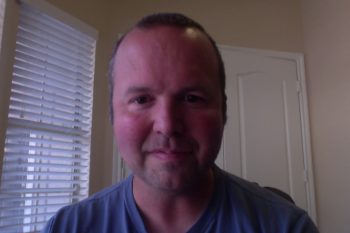
About Matthew Paris:
I was born and raised in Houston, Texas. When I was younger writing is something I never really thought about. I was more a sports kid. However, by the time I go to high school I was doing really well in English class. My Sophomore year I was in English class and my teacher came up to me with an A paper I wrote and she said, she thinks this is a talent and I should explore this. I attended Texas Tech University, where I got my Bachelor's in English Literature. I've written four short films and sold three for international distribution. Two of my short film, "Crisis" and "The Last Catch" played over several continents including; Europe, Middle East, Africa, and the United States. I've written several books on sports and have written over 100 articles on the Sports Column. I was the most viewed articles in 2018 and 2019, on the column.
What inspires you to write?
A lot of things inspire me to write. I think the power of the written word can make a reader learn so much, depending on the subject you as the author are trying to show. There are many things. I like observing, and taking real life events and putting that in a story of fictional characters on paper. Sometimes, if I'm sitting at a restaurant and overhear a conversation, I'll get an idea from that I like to put on paper. Other times, I'll research or watch something that'll give me an idea for a story. We all have a story to tell on paper and for some authors it's a relaxing method if you've had a hard day.
What authors do you read when you aren’t writing?
It depends what I'm in the mood to read. I really like Richard Matheson, who wrote 'I Am Legend", one of my favorite books. I also like Stephen King. He's very descriptive in the pages, might be overly descriptive, but the payoff is amazing. Chuck Palahniuk is a great author too. However, his work is really dark. It really depends what I'm in the mood to read and learn that day.
Tell us about your writing process.
In college professors told you to write everyday. That's good if you have the time and it's perfect practice for the craft. Some authors, like to block out a number of hours to work on a piece. I don't write everyday. There are days where I'll sit at a computer and I won't have anything to put on the screen. I'll go away from it for a few days and come back. That's when I'll write ten pages. The biggest thing about writing is just self motivation for you to do it. But, the more you write the easier it gets. I like to be very spontaneous with my writing. If I have a few hours, I'll spend it writing.
What advice would you give other writers?
The most important thing is to not get discourage. If you write a page, even if you write a sentence, let yourself feel good about it. Also, don't be discourage what other people think about your work. You have to know that it's good and the readers will find it interesting.
How did you decide how to publish your books?
Every publishing company is different. On my first book, "Preparing Athletes For The Future," I knew I'm not a big author and couldn't go to the major publishing companies. So, I took it to a few small independent publishing companies. Dizzy Emu publishing have published all my books and the turn around is quick. You have to edit yourself and catch those little mistakes, but to have a book on Amazon as a paperback and as an e-book on Amazon Kindle. It's exciting for a first time writer to see that your work is published and out there to the world.
What do you think about the future of book publishing?
In the old day, you had to get a literary agent and the agent would want to send it to publishers. That process is a long process, the agent has to like it enough to send it out and sometimes you don't here back from publishing companies. If you do hear back the author would have to do several more drafts before it goes to print. That may take over a year. However, with the rise of technology, authors can now self-publish their work. I'm excited to see what the future holds for publishing. Independent publishing houses are giving inspiring authors a chance for their work to be seen. It's an exciting time and I can't wait to see where the publishing industry goes next. One day, they may have libraries with no books just digital or hologram books that students will read. We'll see where it goes.
What genres do you write?: Drama, Sports
What formats are your books in?: Both eBook and Print
Your Social Media Links
Facebook
All information in this post is presented “as is” supplied by the author. We don’t edit to allow you the reader to hear the author in their own voice.
